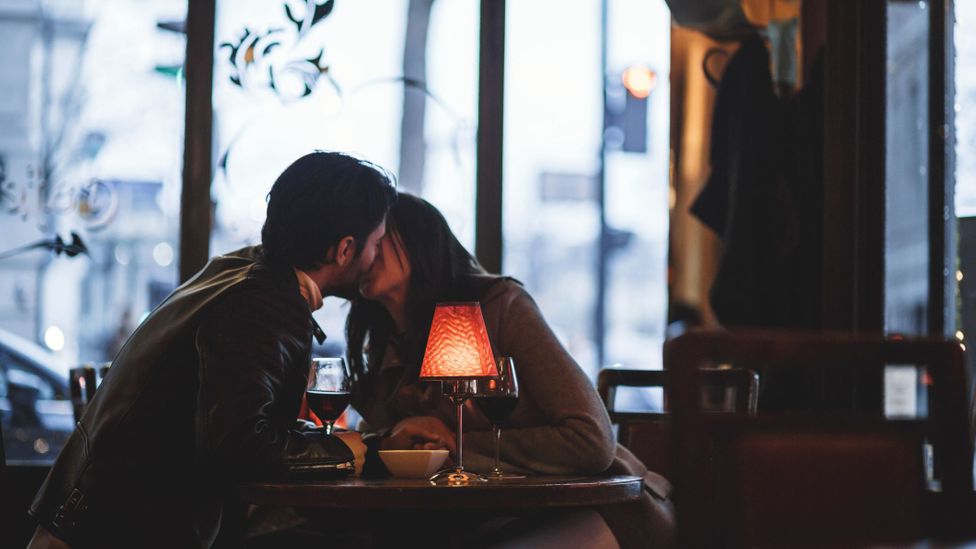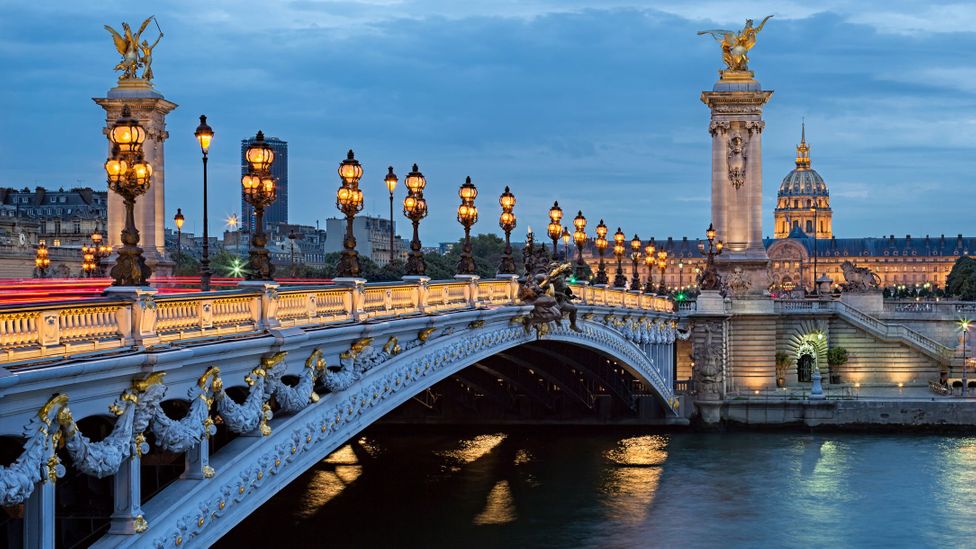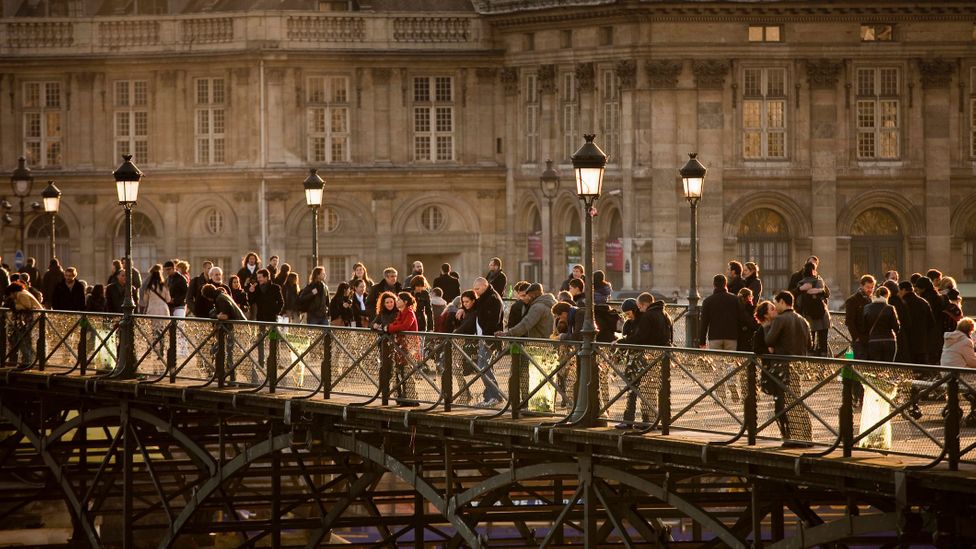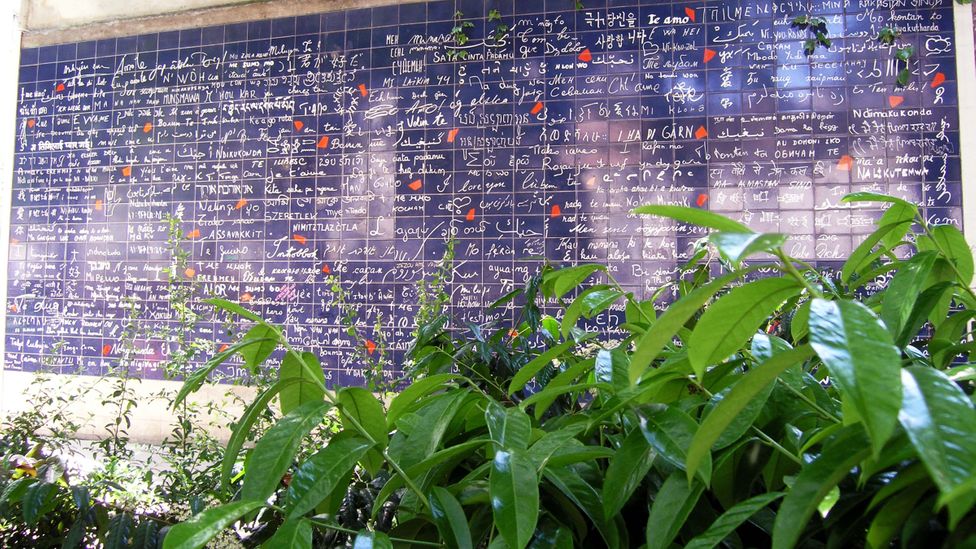what do thay give to each other on in france
Why the French rarely say 'I honey yous'
(Image credit:
Fotostorm/Getty Images
)

It probable explains why the French have the reputation of being and so demonstrative well-nigh beloved – considering if you tin't really say it, you have to evidence information technology.
M
My French husband loves me. I know he loves me because he hands me a bouquet of flowers almost every weekend. And when I tell him I was at a party full of cute people, he charmingly says something nigh "birds of a plumage". I'm reminded that he loves me when we're at a cocktail party with piece of work colleagues and he reaches out to cuddle my arm. He calls me ma biche (my deer) and shows his love for me every day, fifty-fifty after more than a decade together.
However, I can't call up the concluding time he said "je t'aime" (I love y'all). This might be disconcerting if information technology wasn't and then normal in France, where no thing how caput-over-heels a couple may be, they rarely utter those words.
It's not nearly a lack of affection or the fear of commitment. As Lily Heise, a Canadian freelance writer and romance expert living in Paris, observed, commitment seems to come easy to the French. "Afterwards three dates, that's it; they're not seeing anyone else and they expect to be together all solar day, every day, except when work gets in the way," she said.

The opulent Pont Alexandre Three span is undeniably one of Paris' most romantic landmarks (Credit: Guner_Gulyesil/Getty Images)
Heise was inspired to write her starting time volume, Je T'aime, Me Neither, when her French boyfriend left her saying, "Je ne t'aime plus." The declaration was all the more than startling, she said, because how could he say, "I don't love you lot anymore" when he had never said, "I dearest yous"?
The French don't say, "I love you lot" because they don't take a verb to express heartfelt sentiments for the people they intendance most. At that place is only the verb "aimer", which means both "to like" and "to dear". Every bit a result, a French person is not exaggerating when they cohabit "aimer" to explain their relationship to rugby, a warm baguette or the smell of lilacs. Naturally, then, information technology feels trite and rather mundane to utilize the aforementioned word when describing intense feelings of love for one's newborn infant, a childhood friend or a life partner.
Looking at Larousse's online French-English lexicon helps sympathise how the French do talk about love. Here, the transitive verb is divers as "aimer", but the examples listed of how to express that love bear witness how rarely it is used. According to Larousse, when talking well-nigh dear for a sport or a food, the proper French term would be passion. Dear at outset sight is a coup de foudre (lightning strike); messages are signed affectueusement (affectionately); and the love of your life is simply the homme ou femme de ma vie (human being or woman of my life).
Without existence able to say "dearest", the French have learned to show information technology instead. "Flattery", "chivalry" and "romantic" are all words that plant their way into the English language through Old French. Giving compliments is something of an art class here, coming merely as easily from a new lover as the butcher preparing your leg of lamb. Men don't call back twice most carrying a adult female's suitcase down the metro stairs, and, equally for beingness romantic, it's ingrained in a culture that perfected chocolate, invented Champagne and built the opulent Art Nouveau Pont Alexandre III bridge.

The art of romance is ingrained in French culture – although you rarely hear the words "je t'aime" (Credit: Fotostorm/Getty Images)
It's not just nigh romance, either. Marie Houzelle, French author of the novel Tita, who writes exclusively in English, says French parents may say "je t'aime" to their children merely they are more than probable to call them ma puce (my flea), mon chou (my cabbage) or ma mignonne (my cutie) – all mutual pet names in France. Co-ordinate to psychoanalyst Robert Neuburger in the French edition of Slate magazine, "Similar a greeting, or a buss, pet names are part of the intimacy of a couple, a ritual that distinguishes the person yous're addressing from everyone else, and that's what makes it precious."
Yous may also be interested in:
• Why the French love to say no
• Is this the most perfect dearest story?
• The nation that loves lament
In France, pet names are specific to the individual or their role in your life. A human may refer to his female colleauges as mes chats (my cats). A close friend greeting a adult female is likely to phone call her ma belle, or my beauty. An online search of women'southward magazines produces lists of hundreds of pet names for mum, dad, the kids, a friend or a lover: ma ch é ri; monday coeur (my centre); monday trésor (my treasure); ma perle (my pearl).
The French don't have to say it, either. They are happy to communicate their feelings with hugs, cuddles and kisses wherever and whenever they experience the need to express love. There is no fence well-nigh public displays of affection in France, where PDAs are celebrated as a fortunate consequence of love. A Paris summertime is full of couples sitting hip to hip along the Seine, kissing so passionately that they don't notice the encouraging cheers of tourists on the passing Bateaux Mouches river boats.
Parigramme Press has published a guidebook on the best places to kiss in Paris, Où south'embrasser à Paris. ELLE Magazine suggests the Medici Fountain in the Luxembourg Gardens or a bench in the tiny Square Jehan-Rictus at Montmartre, facing a wall where "je t'aime" is written in every language. My Little Paris, a popular website for locals, recommends a brand-out session at the Montparnasse Cemetery, nigh Brancusi'southward sculpture of The Osculation.

The French freely express their dear in public with hugs, cuddles and kisses (Credit: Buena Vista Images/Getty Images)
Kisses also replace "I love yous" when saying practiced-goodbye to friends and family unit. The French say "je t'embrasse" (I buss yous) at the end of phone calls with loved ones. My children stop their text messages to me with bises (kisses), while my practiced friends sign off with a slightly more formal bisous, both describing a osculation that comes from the Latin word baesium, a salute that falls between a sacred rite and a romantic gesture.
A bise is non just for saying good-bye, either. It's role of the French greeting ritual. In Paris, the bise is a uncomplicated peck on each cheek. In parts of the south, people greet each other with three pecks, while in the due north-west, iv pecks can be the norm. The bise is for family, friends, friends of friends and sometimes even co-workers.
This ritual, similar the American hug or the Rwandan handshake that involves both hands, came into question during the pandemic, which inspired the French to test socially distanced alternatives. French President Emmanuel Macron likes the fist bump, just that puts people a little too close for comfort. The foot shake made famous by late Tanzanian president John Magufuli is a threat to the high heels and highly polished shoes the French cherish. The elbow bump became the easiest to integrate, but bonjours nevertheless feel awkward and au revoirs incomplete without a bise.
In May 2021, France finally relaxed Covid restrictions: the curfew was rolled back to 21:00 and restaurants can now serve food outdoors. The French celebrated and were seen greeting each other – sometimes masked, sometimes not – with the bise in front end of Parisian cafes, at chalets in the Alps and in beach shacks on the French Riviera. Vaccinated adults are once again exchanging bises at weddings, baptisms and b'nai mitzvot, and everyone suspects information technology'due south only a matter of months before the bise is back in full. Because in a land where it's non piece of cake to say information technology, everyone is anxious to get dorsum to showing their love.

A monument dedicated to dearest can exist constitute in the Square Jehan-Rictus in Montmartre (Credit: Eddie Linssen/Alamy)
Source: https://www.bbc.com/travel/article/20210613-why-the-french-rarely-say-i-love-you
0 Response to "what do thay give to each other on in france"
Post a Comment